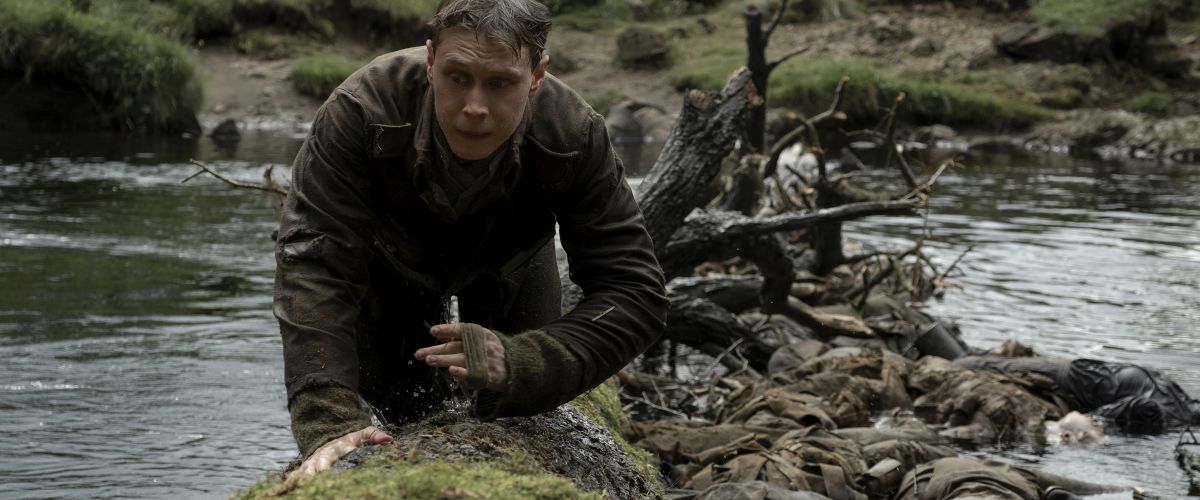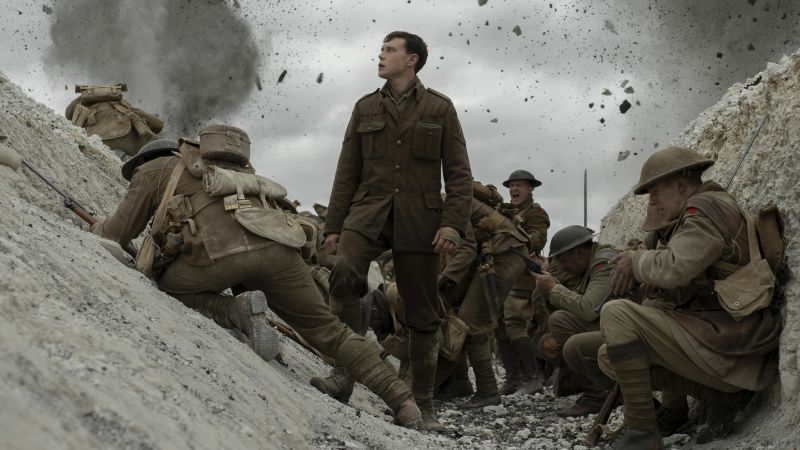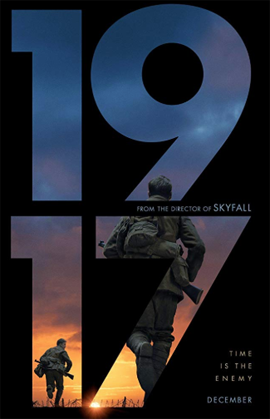Rating:
10/10
Cast:
George MacKay as Schofield
Dean-Charles Chapman as Blake
Andrew Scott as Lieutenant Leslie
Benedict Cumberbatch as MacKenzie
Richard Madden as Lieutenant Blake
Adrian Scarborough as Major Hepburn
Mark Strong
Colin Firth
Daniel Mays
Richard McCabe
Directed by Sam Mendes
Summary:
At the height of World War I on the French warfront, Lance-Corporals Blake and Schofield (Dean-Charles Chapman, George MacKay) are sent on an urgent mission behind enemy lines to deliver a message to a British battalion readying to attack the retreating Germans. They need to be warned that they’re heading into an ambush in which thousands could die if their attack isn’t halted.
Review:
There’s a long, storied tradition of war movies capturing some of the greatest battles in history, yet seemingly, not so many of them, at least not in recent memory, have been set during World War I vs. other wars. Peter Jackson’s 2018 doc They Shall Not Grow Old allowed people to see actual film reel footage that was sitting in the archives for almost 100 years, and that centennial may be what’s creating new interest in what happened in the so-called “war to end all wars.”
Filmmaker Sam Mendes (Skyfall) had a grandfather in the first World War who told him stories when he was younger, inspiring him to create an original story with co-writer Kristy Wilson-Cairns about two young soldiers on an important but seemingly impossible mission. What Mendes does in 1917 with his relatively small cast and a much larger crew is create a war movie that might be compared more to Alejandro Iñarritu’s The Revenant than modern-day war movies like Christopher Nolan’s Dunkirk or Steven Spielberg’s Saving Private Ryan. Much of that has to do with the minimalism of characters and words that puts the focus squarely on the two young men’s journey amidst the chaos going on around them.
The camera opens on George MacKay’s Schofield as he lounges lazily in the grass with the novice Blake, who is told to bring a fellow soldier for a meeting about their next mission. As the camera pulls back and follows the two of them, we see they’re actually in a large field absolutely teeming with soldiers at rest between deployments. That immediate visual sets up what is going to be the most striking film you watch this year.
It’s actually quite compelling once you realize how following these two lone soldiers on their mission is able to keep you captivated through every scene. Every time the two of them turn a corner, we’re thrust into a new environment or locale from a stark wasteland covered in human carnage to a peaceful glen, often within minutes. That sort of dichotomy, one of many inherent in the film, is what keeps the viewer invested in a war movie that’s so much more about the characters than it is the gunfire and explosives. About 40 minutes into the film, something shocking (and quite daring) happens that changes the nature of the rest of the movie, and it’s at that point you know full well that Mendes is not messing around.
I’m not going to spend much time discussing Mendes’ initial idea of filming the entirety of 1917 as one single shot. It very well could have been the make or break of the movie working if overplayed, but with the capable eye and skills of Oscar-winning cinematographer Roger Deakins running the show, the camera and lighting work is beyond belief. More than a few times during the movie, you’ll be watching the screen wondering how they were able to achieve what you’re watching. In fact, every aspect of 1917 highlights a team of professionals around Mendes at the top of their game from the production design team creating picturesque shots for Deakins’ camera to capture, to a stunt and camera crew leaving your jaw agape with their work… And again, that’s without the use of traditional editing and movie magic as a crutch.
Other actors make brief pop-up appearances like Mark Strong or Benedict Cumberbatch, but they’re all fairly small roles that never take away from Chapman and MacKay, the latter clearly paving the way for a long career as a lead actor. These would be too fine performances even without the knowledge of the rigors they must have endured to make Mendes’ idea of a single-shot film work the way it does. Like Westerns and prison films, the war movie is one that is predominantly male-dominated, and that’s also true of 1917, though it’s not as bothersome or distracting as it has been in other movies this year.
The score by Thomas Newman goes from ambient sounds that can barely be considered music to the glorious swelling strings one might normally expect, effectively drawing out every emotion from viewers at key moments. It takes a master filmmaker like Mendes to know when absolute silence is required and when to allow Newman a little more free reign. At times, the insurmountable tension being created is almost unbearable, since you never know what the soldiers might face and what might stand in their way.
It’s this sort of excitement that helps make 1917 such an astonishing and remarkable cinematic achievement. It’s the epitome of widescreen filmmaking that should only be seen in theaters to deliver its fullest effect.
1917 hits select cities on Christmas Day, and then will expand nationwide in January, 2020.
1917 Official Photos
-
1917_tsr1sheet_rgb1

-
1917
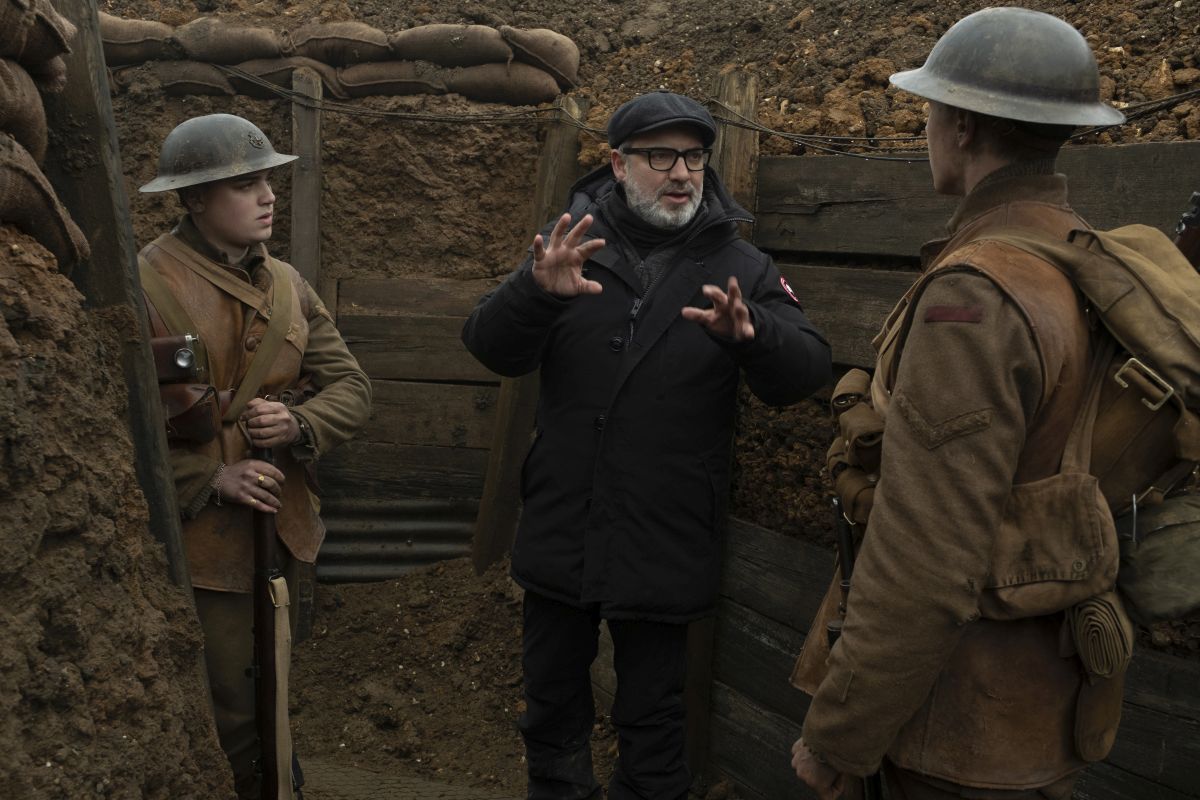
-
1917 (2019)

(from left) Blake (Dean-Charles Chapman) and Schofield (George MacKay) in 1917, the new epic from Oscar®-winning filmmaker Sam Mendes. -
1917 (2019)

(from left) Dean-Charles Chapman, George MacKay and Oscar®-winning filmmaker Sam Mendes on the set of the new epic, 1917. -
1917
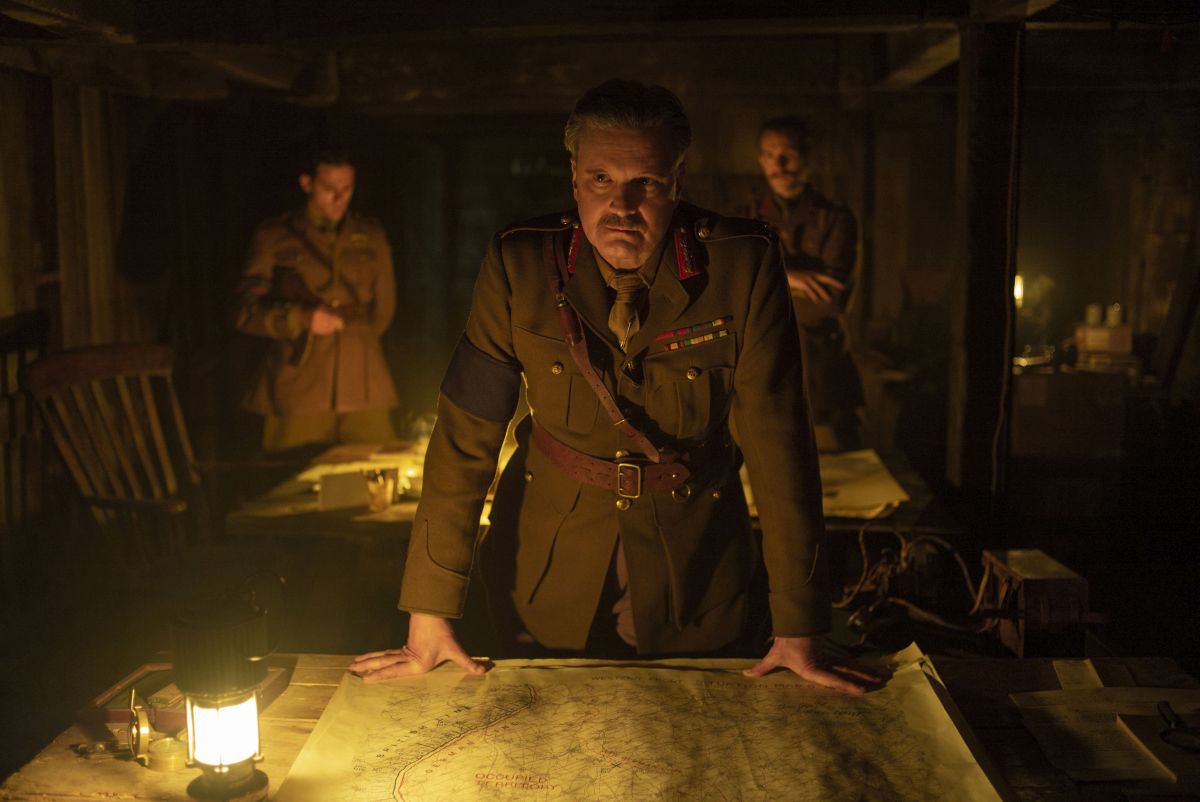
Colin Firth as General Erinmore in 1917, the new epic from Oscar®-winning filmmaker Sam Mendes. -
1917 (2019)
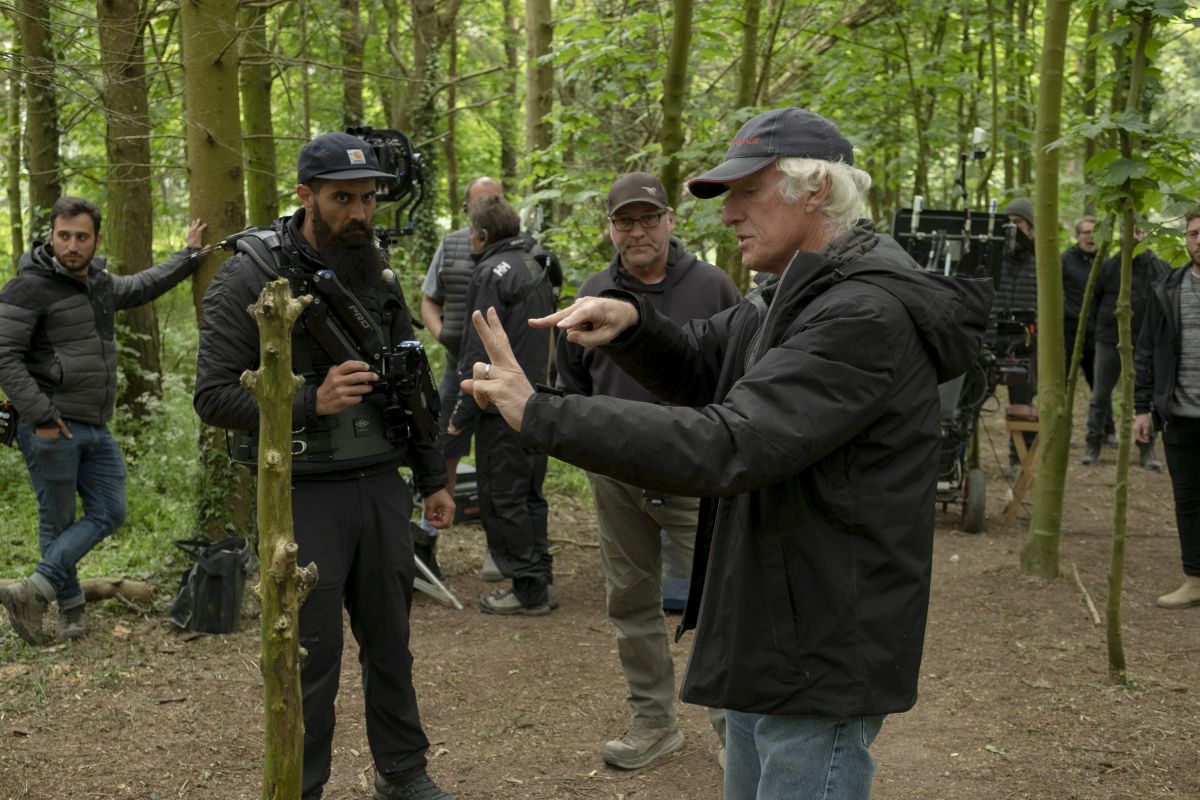
(foreground) Cinematographer Roger Deakins on the set of 1917, the new epic from Oscar®-winning filmmaker Sam Mendes. -
1917 (2019)
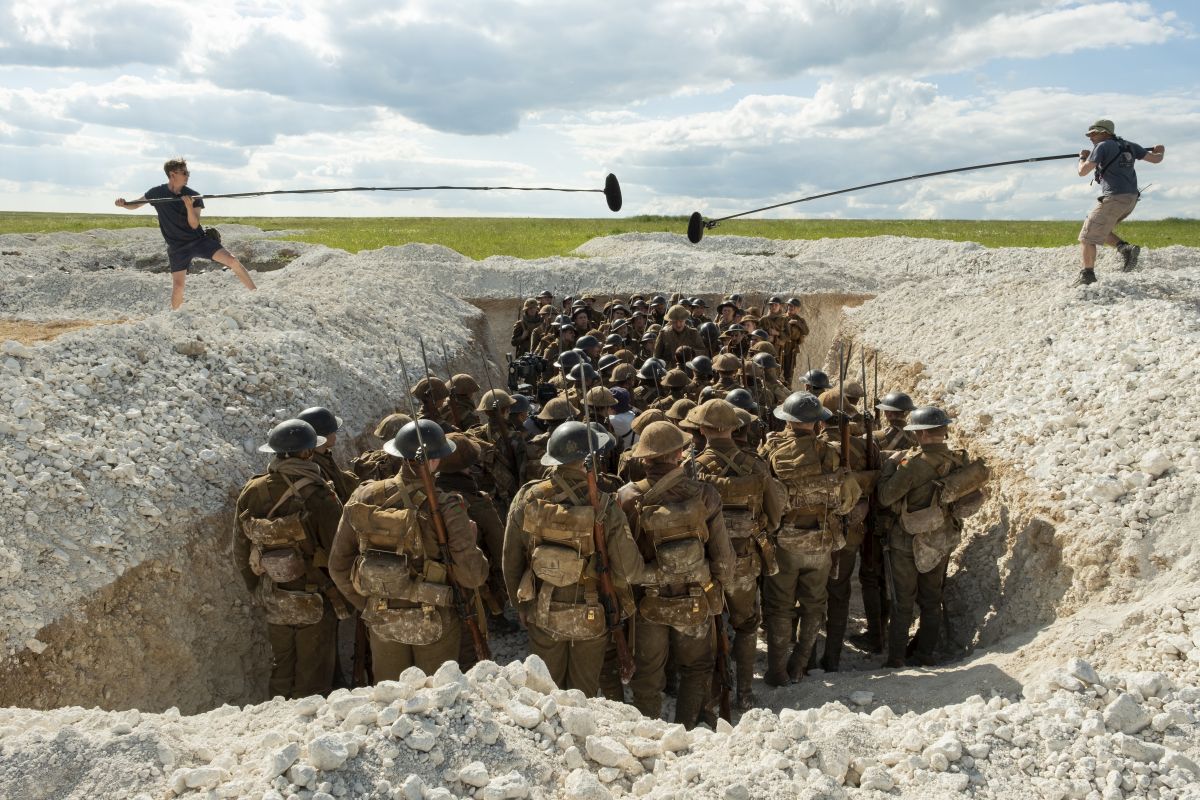
Cast and crew members on the set of 1917, the new epic from Oscar®-winning filmmaker Sam Mendes. -
1917 (2019)
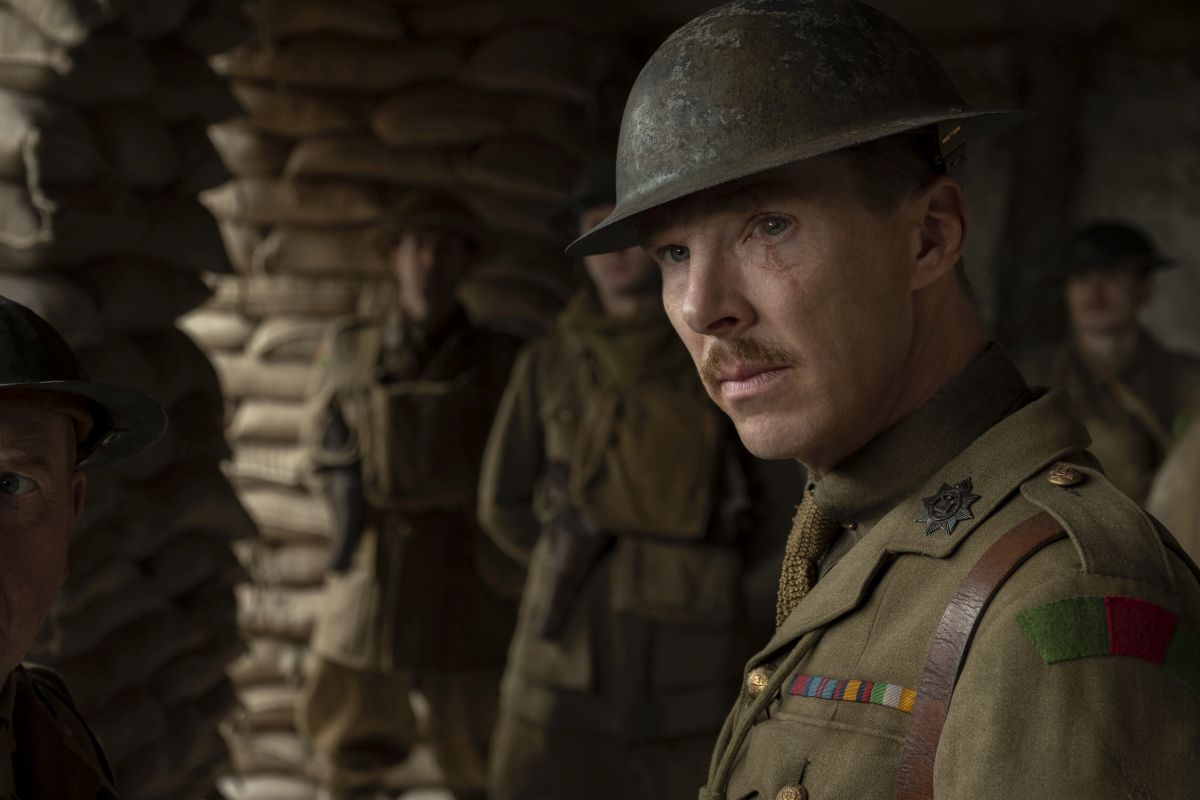
Benedict Cumberbatch as Colonel Mackenzie in 1917, the new epic from Oscar®-winning filmmaker Sam Mendes. -
1917 (2019)
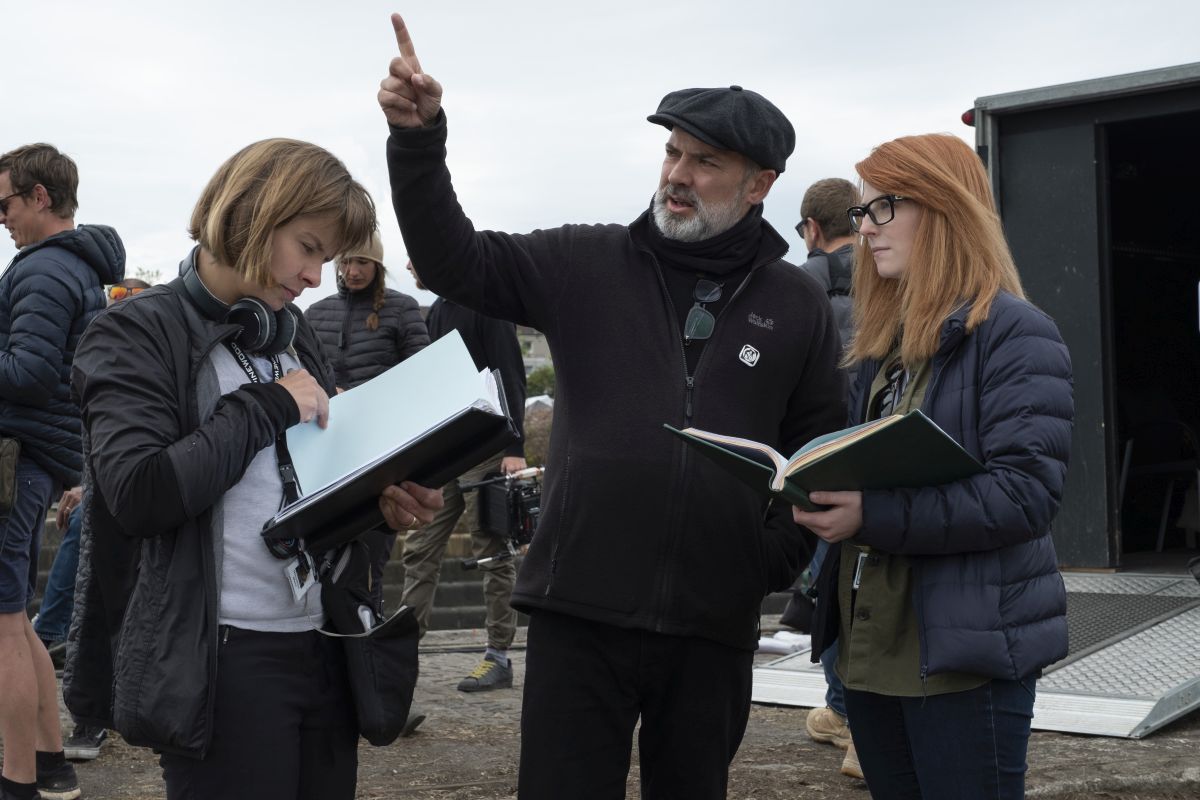
Script supervisor Nicoletta Mani (left) and co-screenwriter Krysty Wilson-Cairns (right) with Oscar®-winning filmmaker Sam Mendes on the set of Mendes’ new epic, 1917. -
1917 (2019)
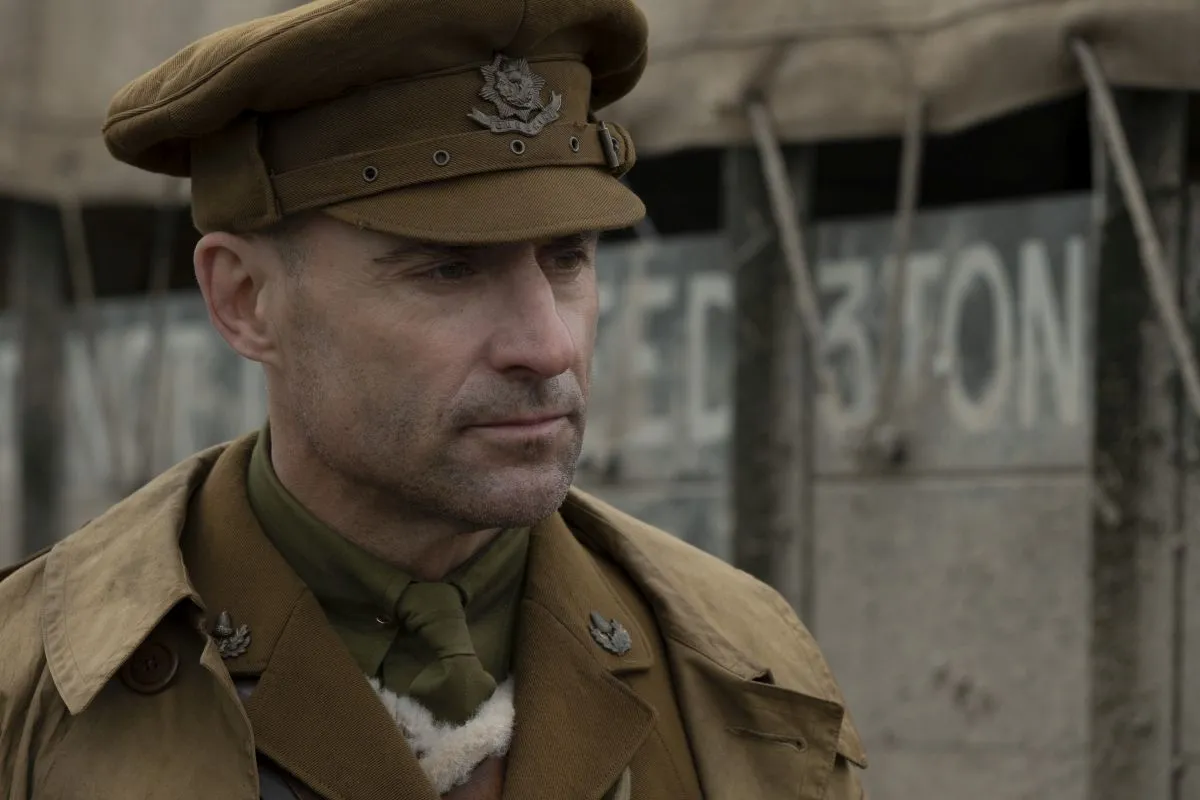
Mark Strong as Captain Smith in 1917, the new epic from Oscar®-winning filmmaker Sam Mendes. -
1917
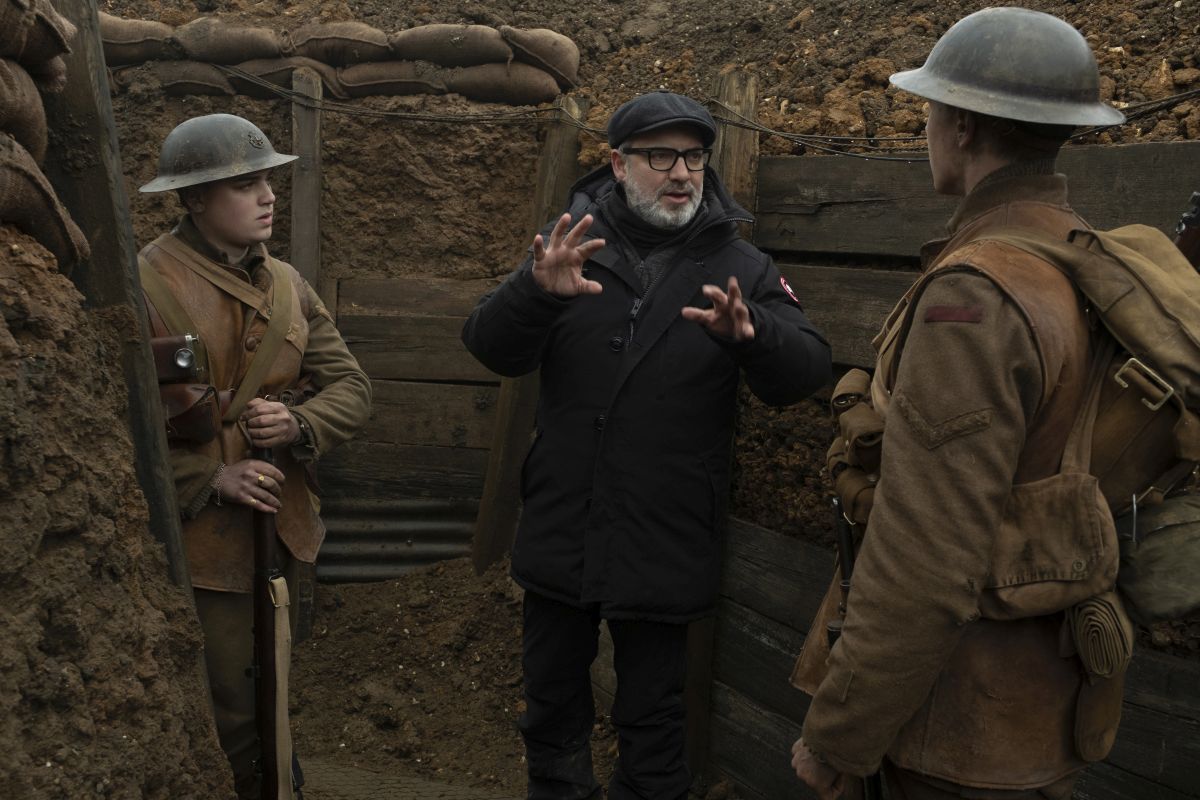
-
1917

-
1917
